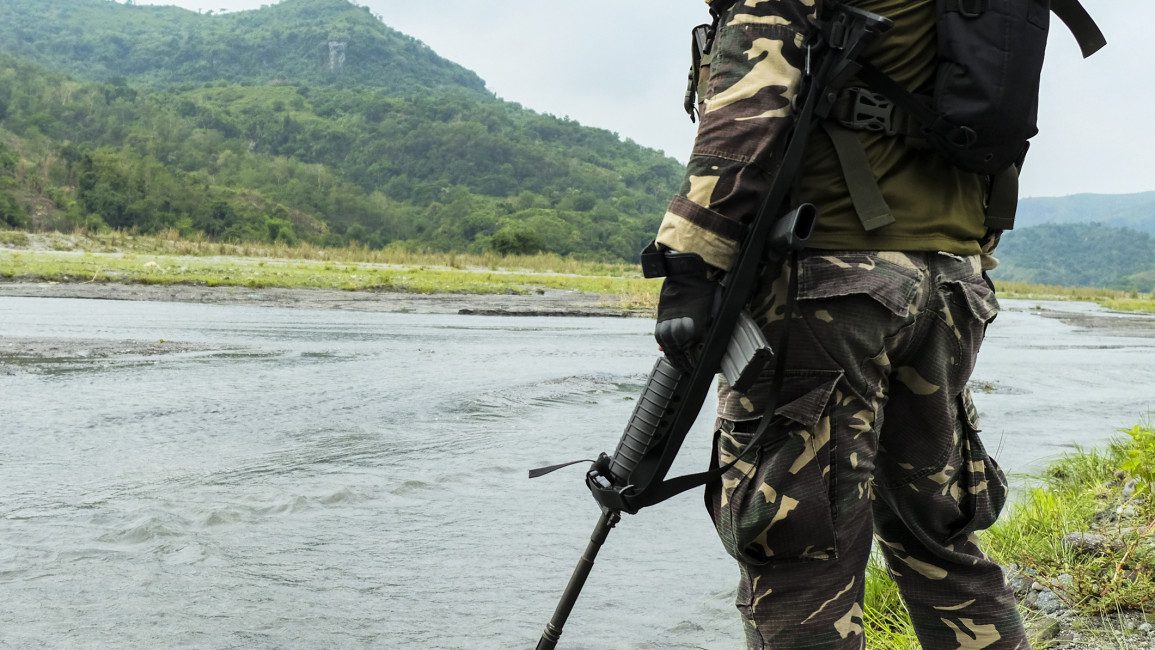World
Philippine army engage Muslim militants, seven people are killed

At least three soldiers and four Muslim insurgents were killed in combat between the Philippine military and the rebels in a town in the south, raising concerns that more violence might jeopardize a 2014 peace agreement that has significantly reduced years of fierce warfare.
On the island province of Basilan, sporadic confrontations broke out on Tuesday and Wednesday in a hamlet near Ungkaya Pukan town. Separate orders were given by military and Moro Islamic Liberation Front officials for their forces to stop fighting and allow de-escalation discussions on Thursday.
The 2014 peace agreement, which ended years of bloody and protracted fighting between government forces and the Muslim rebel front, the largest separatist insurgent group in the south of the largely Roman Catholic country, was allegedly violated, according to military and rebel commanders present at the scene of the fighting.
The military reported three troops killed and seven others injured in the battles, but the rebels claimed at least four were killed and several others were hurt.
The fight highlighted the brittleness of law and order in the southern area, which is home to private armies, a glut of uncontrolled weaponry, extreme poverty, and a long history of violence.
The Moro Islamic Liberation Front gave up its quest for independence under the terms of the 2014 peace agreement in return for the more potent and well-funded Muslim autonomous region known as Bangsamoro.
Former rebel commanders are currently in charge of the five Muslim provinces during a transitional period that will conclude in 2025.
About 40,000 rebels have decided to surrender their weapons and resume regular life in exchange for financial assistance under the peace agreement.
While they awaited a drawn-out “decommissioning procedure,” a code word for surrendering their weapons, thousands of other rebels maintained their guns.
Due to accusations that former rebels have not received promised money and other incentives from the government, the process has been delayed.
Interior Minister of the Bangsamoro autonomous region Naguib Sinarimbo told The Associated Press, “This is concerning because the consequences are troubling to us.
We are concerned that if there are sparks like these, questions may be raised about whether the decommissioning procedure would proceed.
An army brigade commander in Basilan, Brigadier General Domingo Gobway, said that his troops were harshly punishing armed individuals who were employing improvised explosives for extortion and intimidation.
The gunmen escaped the military operation and sought refuge in Ulitan, a town in Basilan, where they were guarded by rebels from the Moro Islamic Liberation Front, he claimed.
Gobway claimed that despite an agreement that rebel firearms and other weapons should be restricted in mutually identified Moro Islamic Liberation Front encampments, Moro Islamic Liberation Front guerrillas returned with their firearms on Monday despite being forced to flee Ulitan village in September due to the military crackdown.
On Tuesday and Wednesday in Ulitan, troops came under fire, which prompted them to retaliate and take steps to contain the situation, according to military authorities.
While the benefits of the peace process have begun to be felt by the populace, Mohagher Iqbal, the leader of the Muslim guerrillas throughout years of peace negotiations with the government, stated the violence “was an unfortunate episode that no one intended to happen.”
Iqbal asked the government and rebel ceasefire negotiators to conduct an inquiry to stop further bloody battles and demanded that the fighters “immediately withdraw to prevent the situation from worsening.”
Progress in peace negotiations between Manila and Muslim rebels, who have recently transformed major battlegrounds into potential growth hubs in the south, the homeland of the country’s minority Muslim population that resides in some of the poorest and least developed provinces, has been warmly welcomed by Western governments.
There were concerns that if the long-running Muslim insurgency in the southern Philippines persisted, a sizable number of Muslim militants may form an alliance with outside terrorist organizations and convert the region into a haven for extremists.
